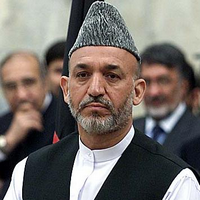U.S. strategies in two key fronts of the ongoing struggle against terrorism and extremism -- Afghanistan and Somalia -- are predicated on one critical element: the eventual emergence of a central government that can establish its writ throughout the territory nominally under its jurisdiction.
And in both cases, the central governments that exist on paper seem to offer little hope for success. Diplomats may recognize Sheik Sharif Sheik Ahmed, the head of the Transitional Federal Government (TFG), as president of Somalia, and Hamid Karzai has held the presidency in Afghanistan for many years now. But oftentimes it seems that both men are, in essence, the mayors of Mogadishu and Kabul, respectively.
Testifying before the Africa subcommittee of the House Committee on Foreign Affairs last month, professor Ken Menkhaus had this to say (.pdf) about the TFG, which he called the "cornerstone" of U.S. strategy in Somalia:

